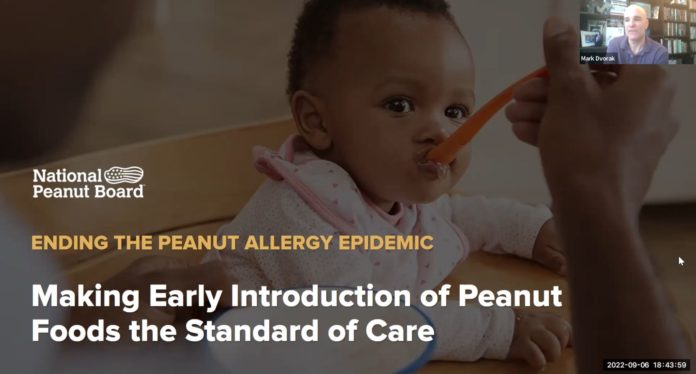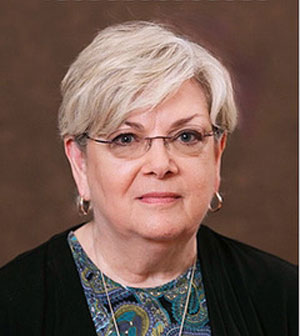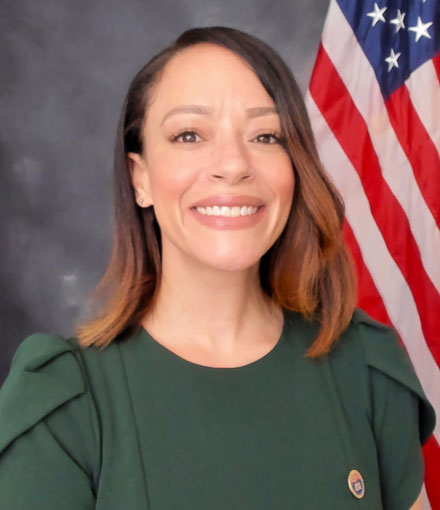
Communication students are working with a national group to raise awareness about steps that can help prevent peanut allergies in children. Bears in Dr. Arla Bernstein’s integrative communication capstone course are creating campaigns that will be presented to a National Peanut Board representative later this month.
“My hope is that my students would come out of the project with a keener sense of the knowledge and skills needed for the communication profession and a greater appreciation for professional ethics in working with clients,” said Dr. Bernstein, assistant professor and coordinator of the communication program in Mercer’s College of Professional Advancement.

In the United States, there are about 4 million births each year, and 90,000 of those infants are likely to develop a peanut allergy, said Mark Dvorak, representative for the National Peanut Board’s Prevent Peanut Allergies campaign, during a Zoom meeting with the class earlier this semester. While 2.25% may not be a large percentage of births, a peanut allergy is serious and greatly affects a child and family’s life.
A groundbreaking study by Learning Early About Peanut Allergy (LEAP) in 2015 found that introducing peanut products to children as infants can reduce the risk of developing an allergy by up to 86 percent. As a result, new guidelines were released to promote early introduction processes.
For the past several years, the National Peanut Board has been helping lead efforts to educate health care providers and parents and make early introduction of peanuts the standard of care. In 2021, about 40 percent of parents were following the advice, Dvorak said.
Dr. Bernstein said she learned of the board’s allergy-prevention initiatives during a webinar hosted by the Georgia chapter of the Public Relations Society of America. She was inspired by Dvorak’s presentation during the event and connected with him about creating a service-learning project for her students.

In spring 2020, undergraduate students in her health communication course and graduate students in Dr. Nadia Barnett’s nutrition course interviewed 30 practitioners — including physicians, nurses, pharmacists and counselors for WIC (a nutrition program for women, infants and children) — and collected data. Those transcripts revealed patterns, perceptions and attitudes of health practitioners, who have major influence on the actions of parents and community members. Representatives of the Department of Agriculture showed great interest in the data during a meeting with Dvorak, Dr. Bernstein said.
Raquel Rose, a Double Bear who earned her bachelor’s degree in communication in 2020 and master’s degree in organizational leadership in 2022, said she conducted research on older allergy practices and interviewed a few physicians at the Centers for Disease Control and Prevention, where she works, for the course.
“We wanted to hear their knowledge, awareness and attitudes toward the new guidance and their behavioral intent in that attitude,” Rose said.

This semester, the six capstone students have been examining data and developing campaign plans and messages geared toward health practitioners, Dr. Bernstein said. They are gaining experience in research methods by using the Qualitative Thematic Analysis Module developed by Dr. Bernstein, as well as insight into working with real clients. The students will present their campaigns to Dvorak on Zoom in mid-December.
“We would like to attend conferences and be guest speakers, maybe join medical podcasts and blogs,” said Cameron Miller, a digital media communication major. “We’ll collaborate with the doctors on how we can best get this message across to parents. They need to understand what we are trying to accomplish and that it comes from statistics and facts.”
Other elements of Miller’s campaign with her group are a website with information and resources for parents and an educational video for waiting rooms at doctors’ offices.
The project hit close to home for Shirah Joyner, an organizational communication major. Both she and her 12-year-old son have a peanut allergy. She said her doctors didn’t mention early introduction of peanuts when her son was young, but she would have done it had she known.
“It’s debilitating in ways we didn’t expect,” said Joyner, an enrollment and licensing specialist at curriculum company Amplify. “Every trip to the store is reading every label. The research in this project has helped in highlighting differences in quality of life that this process can provide for patients and their families.”

Joyner is excited to communicate her group’s campaign, reinforce the reputation of the National Peanut Board, and transmit positive messages that could impact the standard of care.
Rose said her involvement in the allergy-prevention project had a huge impact on the direction of her career. She was an administrator to a director at the CDC in Atlanta in spring 2020, and now she is a health communication specialist in the Office of Finance Resources.
“It opened my eyes to what I could do at the CDC, and it kind of propelled me into health communications. That’s what I do now. This project really (opened) my eyes to the message, the scope,” she said.
Miller said her work on the campaign has already helped her in her current job as a senior project analyst at Yulista, a contractor that modifies helicopters for the U.S. Army.
“We do a lot of contract proposals in my line of work, so breaking down those interviews and creating the objectives, goals, strategies and tactics has correlated so well with my line of work,” she said. “It’s something I’m going to continue to carry with me.”









